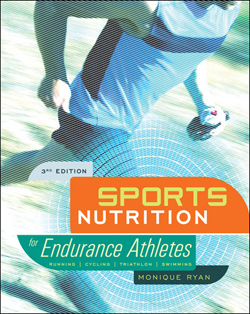Nationwide Teleconsulting • Sports Nutrition E-Programs


Category Archives: Wellness Blog
Dietary Supplements tied to Spike in Liver Harm

January 20, 2014
In a recent New York Times article, a national network of liver specialists found that recent data suggest that dietary supplements now account for 20-percent of drug related liver injuries that turn up in hospitals- up from 7-percent a decade ago. This might undercount the actual number of cases, since only the most serious cases Continue Reading »
Top 14 Nutrition Trends for 2014 According to the Experts
January 2, 2014
The annual trends forecast from the nutrition experts– Registered Dietitians- is in for 2014. Whether scientifically correct or not, dietitians identified some top consumer nutrition and food trends that will stay in the headlines and influence food purchasing decisions. Miss-information, a glut of information, and the challenges consumers face in sifting through the scientific facts Continue Reading »
Red, Blue and Purple Foods for Anthocyanins
July 26, 2013
Blueberries and strawberries may protect your heart thanks to naturally occuring pigments called anthocyanins that are red, blue and purple. In the Nurses Health Study over 93,000 women aged 25 to 42 years old were tracked for 18 years. Those who had the most anthocyanins from food (over 25 milligrams daily) had a 32% lower risk of heart disease Continue Reading »
More veggies for your heart
July 19, 2013
You don’t have to become a vegetarian to protect your heart, but eating more like a vegetarian could help. The EPIC study from Oxford, England and recently published in the American Journal of Clinical Nutrition found that a vegetarian diet is associated with a lower risk of cardiovascular disease. So more fruits, vegetables, whole grains, Continue Reading »
Where do I get vitamin D?
July 5, 2013
Because vitamin D food sources are so limited and there are risks in relying on sunlight for vitamin D (increased risk of skin cancer), a vitamin D supplement may be your best option. Of course, you cannot even make vitamin D in much of the northern United Sates from sunlight from November to April. Current Continue Reading »
Food Sources of Vitamin D
June 28, 2013
Food sources of vitamin D are very limited. They include fatty fish, such as cod, mackerel, salmon, and sardines, and egg yolks. Fortified food sources of vitamin D include dairy milk, soy milk, butter, margarine, and many cereals. If you spend a considerable amount of time in direct sunlight this summer when exercising or enjoying Continue Reading »
Athletes, It’s Time for a vitamin D check!

May 17, 2013
Do you know your blood vitamin D levels? Vitamin D is actually a hormone that performs many important functions in the body. In addition to its well known role in building bone, vitamin D may also protect us from many autoimmune conditions and certain cancers. With food sources of vitamin D being very limited, we Continue Reading »